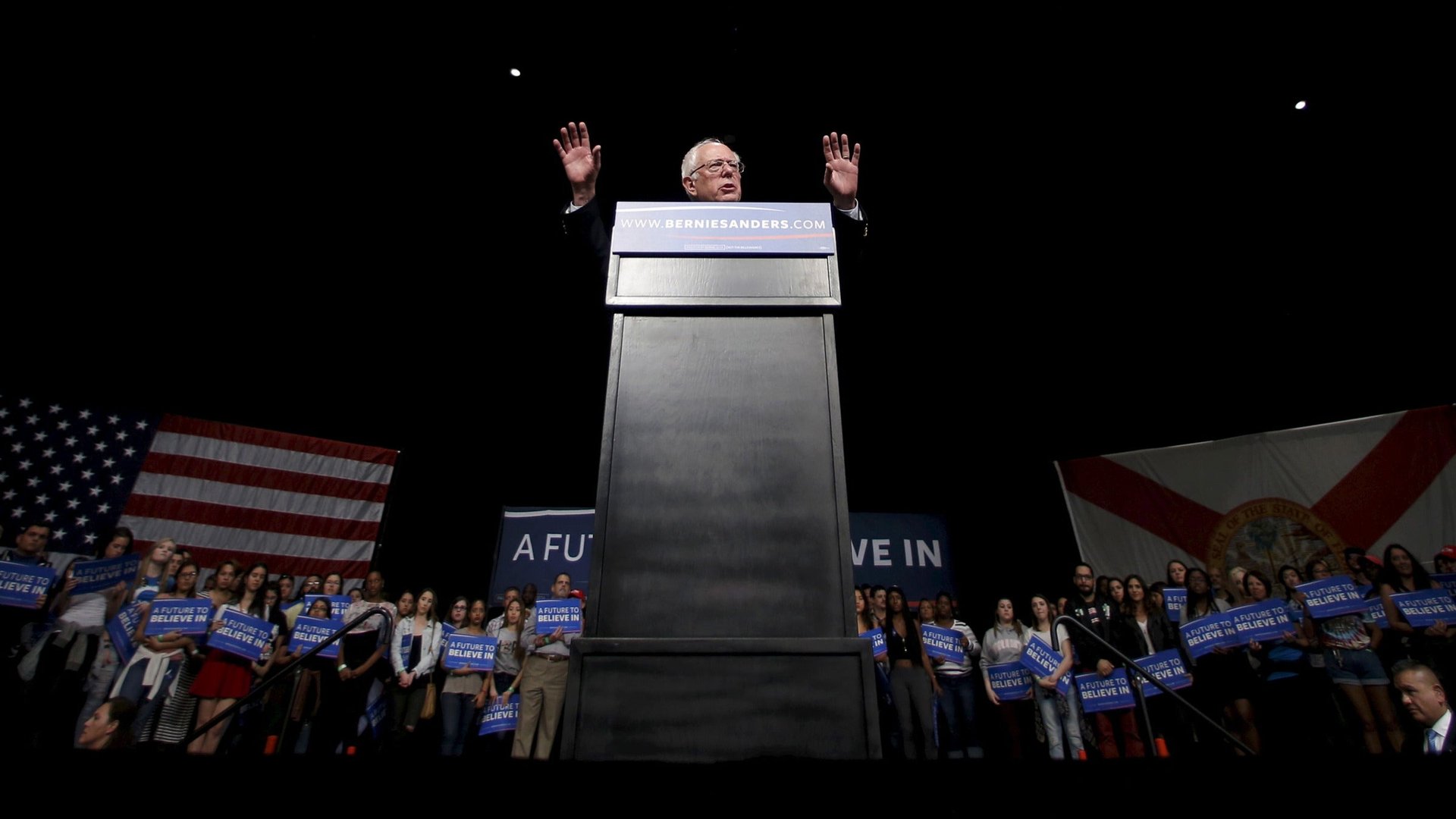Bernie Sanders’ shock win in Michigan is his biggest victory yet
In an upset, senator Bernie Sanders has won the Michigan Democratic primary, the Associated Press reports, restoring his momentum as the campaign heads into a critical stretch.


In an upset, senator Bernie Sanders has won the Michigan Democratic primary, the Associated Press reports, restoring his momentum as the campaign heads into a critical stretch.
While he won’t take home the most delegates on the night thanks to the tight margin of his victory and Hillary Clinton’s win in Mississippi, the against-the-odds result gives credibility to his campaign’s plan to fight for the nomination into the summer.
Defying polls that forecast a major Clinton victory, Michigan voters turned out in droves to push Sanders over the line. His big advantage in backing from young people and working-class white men outweighed Clinton’s strong support from women and black voters.
But he also appeared to add to his coalition. In particular, exit polls showed Clinton won black voters 62% to 32%, a large margin but not the stratospheric margins she has reached in southern states. If that is a sign that Sanders is finally starting to broaden his appeal, it represents an important development in the Democratic primary race.
Sanders worked to tie Clinton to trade deals signed by her husband that have hurt manufacturing, especially in the auto-industry capital of Detroit. She countered with criticism of Sanders for voting against an auto industry bailout, and focused on the water crisis in Flint.
While a tight finish will mean an inquisition at the Clinton campaign headquarters, tonight will still expand her lead in the delegate count thanks to her disproportionate win in Mississippi.
Her campaign’s path to winning the nomination is to maximize turn-out in states where her backers, especially black voters, are especially predominant. Clinton has been steadily squeezing Sanders out of the race by running up the score in populous southern states like Texas, Tennessee, Virginia, Alabama, and Georgia. Her challenge will be to protect that lead by winning over young voters.
Sanders must now win about 56% of the remaining delegates to secure the nomination—a tall order for a candidate who still has yet to lead a national poll average. But his campaign team stresses that the path ahead includes more states that play to his strengths.
He’ll start by making his case in yet another debate on March 9, ahead of the March 15 votes in Florida, Illinois, North Carolina, and particularly Ohio, which hosts a similar electorate to Michigan. Those states will now be potentially decisive in the Democratic primary.